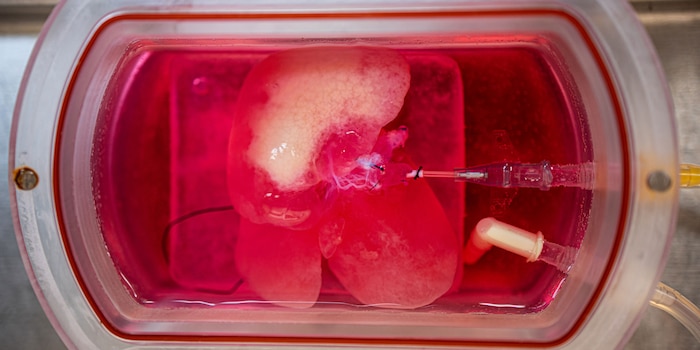
Human mini liver works in rats
Researchers are growing a miniature liver from human skin cells. This worked in rats, at least for a few days.
Researchers at the University of Pittsburgh School of Medicine have used human skin cells to produce a fully functional miniliver, which they then transplanted into rats. In this proof-of-concept experiment, the lab-created organs survived for four days in their animal hosts. The mini-organ was able to excrete bile acid and urea, just like a normal liver.
The scientists created the miniature liver by first reprogramming human skin cells into stem cells. This is now a well-established biotechnological method. They caused the stem cells to transform into different types of liver cells. The researchers then implanted these into a rat liver in the laboratory, gradually removing all the animal cells. What takes up to two years in a natural environment only took less than a month in the bioreactor.
Applications in organ donation?
As a final test, the Pittsburgh team transplanted the lab-grown mini-livers into five rats. Four days after the procedure, they examined the condition of the implanted organs. Although blood circulation problems had developed within and around the transplant in all cases, the liver was functioning.
"The long-term goal is to create organs that can replace organ donation, but in the near term I see this as a bridge to transplantation," said Alejandro Soto-Gutierrez, the study's lead author and a professor of pathology at the University of Pittsburgh. "In acute liver failure, for example, you might only need a liver boost for a while instead of a whole new liver." However, there are still significant challenges to overcome, Soto-Gutierrez said, including long-term survival and safety issues.
Spectrum of science
We are a partner of Spektrum der Wissenschaft and want to make sound information more accessible to you. Follow Spektrum der Wissenschaft if you like the articles.
[[small:]]
Experts from science and research report on the latest findings in their fields – competent, authentic and comprehensible.
From the latest iPhone to the return of 80s fashion. The editorial team will help you make sense of it all.
Show all